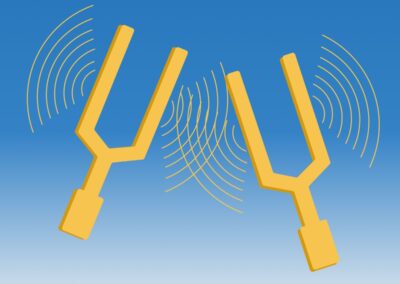How Priority Consciousness Helps Prevent Living Life on Autopilot
Modern life is fast and complex. We juggle work, relationships, and the constant need to keep up. Digital multitasking is second nature, with texts, emails, and calls coming at us from all directions. Just when we try to pause, our phones lure us back in for one more scroll.
In the chaos, it’s easy to drift through, living life on autopilot—reacting rather than reflecting. Rarely do we stop to ask: Is this aligned with what really matters to me?
Enter priority consciousness: a mindset of staying consistently attuned to what matters most. It’s not about rigid scheduling or hyper-productivity. It’s about returning, again and again, to your deeper values—and letting them guide your decisions.
Why Priority Consciousness Matters
Priority consciousness isn’t just a helpful mindset—it’s a life-defining skill. In a world overflowing with demands, it’s the single most powerful way to protect your time, focus your energy, and build a life that reflects what truly matters. If you could master only one habit in the modern world, this would be it.
Without priority consciousness, it’s easy to spend even decades chasing the urgent but unimportant—drifting down paths that drain you, consuming time you’ll never get back. But with it, you become laser-focused. You stop reacting and start choosing. You cut through noise, avoid detours, and begin investing in the people, goals, and values that give your life meaning.
This shift doesn’t just make you more productive—it changes your experience of living. You gain clarity, confidence, and momentum. Even difficult or mundane tasks feel different when they serve a greater purpose. Priority consciousness saves you time, but more than that, it saves your life from fragmentation.
“When you live with priority consciousness, you’re not just managing your schedule—you’re directing your story. It’s the difference between surviving the day and shaping your destiny.”
Why It’s Difficult to Develop
The world is full of forces that pull us away from what matters.
Distraction is relentless. From the moment we wake up, alerts and obligations fragment our attention. Over time, reacting becomes the norm, making it hard to distinguish meaning from noise.
Then there’s the quiet drift. Without reflection, we start responding to others’ priorities, mistaking them for our own. We stay busy, but often not with what’s most important.
And finally, there’s delay. We know what matters—write the book, repair the relationship, prioritize our health—but keep postponing it. We tell ourselves we’ll get to it “soon,” but “soon” rarely comes unless we act with intention.
Three Essential Tools for Building Priority Consciousness

1. Start with the End in Mind
Stephen Covey’s classic advice—begin with the end in mind—is a powerful way to clarify what matters. He suggests imagining four people speaking at your funeral: a family member, a friend, a colleague, and a neighbor. What would you want them to say?
This isn’t a morbid exercise—it’s clarifying. It brings your core values into focus, often buried beneath daily noise.
For example, if you hope your child would say, “My parent was always present,” that vision can shape small, concrete choices—like putting your phone away at dinner.
Even a few minutes of this kind of reflection can help realign your actions with what you care about most.
2. Honor What’s Important but Not Urgent
Stephen Covey famously categorized tasks by urgency and importance. The most overlooked—but most transformative—are those that are important but not urgent.
These include relationship-building, long-term planning, creative exploration, or skills for a future pivot. They don’t clamor for your attention—but they quietly shape the trajectory of your life.
Reflect on how often these deeper priorities get postponed. Is there a relationship that needs nurturing? A project you keep meaning to start? A skill you want to develop for a future chapter? These aren’t emergencies—but they are essential.
True priority management means choosing to act on what matters before urgency ever enters the picture.
3. Make Yourself Accountable
Accountability is one of the most overlooked—but powerful—tools for staying aligned with what matters. We often keep our highest aims to ourselves, out of fear, perfectionism, or the belief that we should be able to follow through alone. But involving someone else can create structure, motivation, and follow-through.
For example, you might ask a friend to check in with you daily, if needed, or weekly to help you stay consistent with a new exercise routine.
When your goals are witnessed and supported, they stop being abstract ideas—and start becoming lived commitments.
Closing Thoughts
Modern life pulls us in many directions—but rarely encourages us to pause and ask if we’re heading where we truly want to go.
Priority consciousness offers a way back. It’s both a mindset and a practice—built by returning to your core values and using tools like reflection, planning, and accountability to stay aligned.
You don’t need a total life overhaul. Small, consistent steps—taken with intention—can gradually reshape your days. Over time, you’ll move from a life of constant activity to one rich with meaning and direction.
Start today—because what matters most shouldn’t be what gets your attention last.



